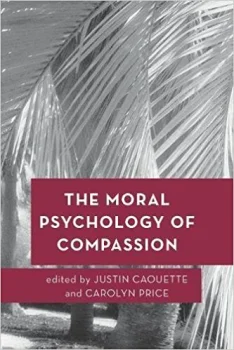*Since drafting this post, I have moved to take a temporary job to be near my non-academic partner. I’ve decided to keep this post general, but hope to write about that experience once I’ve settled in properly.
In this post, I’m going to talk about a couple of issues with the philosophy job market that I think deserve more attention. The issues are short-term appointments, and what I’ll call the n-body problem.
It’s (recently?) become common for philosophy PhDs to take one or more postdocs or other short term appointments. Here I’m particularly worried about appointments for less than 2 full years, which are problematic not just for financial or personal reasons, but for research reasons as well—it’s harder to do research and publish if you’re constantly on the job market.
The n-body problem is the analogue of the 2-body problem for academics in relationships with other academics, but for people in other situations. There are particular problems faced by early career people with families, but also those who are single or in relationships with non-academics. It’s the latter I’ll be most concerned with here, as I don’t have kids, but much of this will apply to families, and perhaps even more-so as moving is much more difficult when you have kids.
The obvious problem with short appointments is financial. Moving around the world is very expensive, and it’ extremely rare to get your moving costs covered when you’re actually moving. I’ve accumulated a bunch of furniture that I’ve become quite attached to, and buying furniture (or renting furnished flats) its expensive anyway. Visa costs can be prohibitive if you get a postdoc in another country, too.
Moving with a partner means that you can share the cost of shipping or a UHaul, and if you’re going to be living together, you can also share the costs associated with finding somewhere to live, like a security deposit, first and last months’ rent, or utility deposits (all of which will need to be covered long before you get paid). More that that though, moving with a partner means you (both) have help, emotional support, and company when you arrive in a new city.
From a certain important perspective it is easier to move on your own, and it’s very often easier to decide to move on your own. On the other hand it can be much more difficult emotionally. We often talk as if early career academics aren’t really leaving anything behind when they take a position somewhere else, or a the very least, we assume that your friends (obviously all grad students) have left or will be leaving soon, too.
With the exception of my Co-editors here at APT and a couple of other people, my best friends in Calgary were non-academics I met by living in a great neighborhood. I even gave a shout out to the Twelfth Avenue Crew in the acknowledgements in my dissertation. Leaving my adoptive family is a huge decision and a painful thing to consider. While I know this isn’t the case for everyone, the possibility should be recognized more that it seems to be.
(I’ve been working on a blog post about the value of non-academic friends, but it’s turning out to be very difficult to find the right tone.)
What about moving with a non-academic partner? The two body problem for academics is the problem that there’s rarely (funding for) a position for the partner, especially if you’re both philosophers. This means if your partner is lucky (in one sense), they’ll get a job in another city not too far away. However, there is sometimes the possibility of a second appointment for a partner, especially at well-funded schools/departments. That possibility doesn’t exist if your partner isn’t an academic. It’s not easy to ask your partner to quit their job and (likely) pay to get re-certified in a another jurisdiction. This is especially true if you’re just moving for a year or two.
You also have to consider your partner’s preferences regarding where to live. While this is also true if your partner is an academic, there’s a better chance they’re already prepared to move to a small town in another country.
Now you might think: you, as an academic on the job market, should be prepared to do the long distance thing while you take a 1 year posdoc. But will it be only 1 short-term appointment? Will you be able to afford to maintain two households, and still save enough to move somewhere else in year? What about people who’s relationships are fairly new—should they be prepared to give up that relationship for temporary work?
At the end of the day, we must consider early career academics that don’t fit the antiquated stereotype of a wealthy white man married to either another academic, or someone willing to give up their career for his. This is especially true if colleges and departments truly value diversity.
I’ll end with some suggestions.
- make sure moving costs are covered up front (not reimbursed)
- make sure health insurance covers peoples’ partners for free
- don’t make a marriage certificate a condition for special treatment
- reserve appointments of less than two years for recent PhDs from your or nearby institutions who need more time to apply for jobs (and make these automatic, and guaranteed)



Soo
October 10, 2018
I totally agree with you! I look forward to hearing from you about your life there!
LikeLiked by 2 people